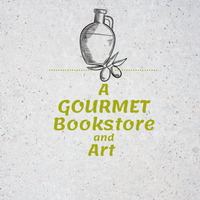Benefits of cooking with Cast iron
Were you thinking about the cookware you are using and how the material they are made of can affect your health? Certainly, cooking in the wrong pot can also lead to disease. You can with confidence turn to cast iron as associate healthy cooking with healthy eating. With cast iron, you can produce fantastic one-pot wonders on the stove; you can also meet high standards for making tantalizing tarts, cobblers, and other creations in the oven. Cast iron cookware is non-stick, holds a high heat capacity, is free of chemicals, adds trace amounts of iron to your food, and lasts—well—forever.
Versatility and Durability
The versatility and durability of cast iron cookware make them well-crafted kitchen commodities that get better with age. It takes some intentional maintenance to keep these kitchen tools in good working order; however, the results far outweigh the effort it takes to keep them in tip-top cooking shape. You can purchase a cast-iron skillet that has been pre-seasoned, or you can season it yourself by coating the inside and outside of the skillet with cooking oil and heating it in a warm oven for at least an hour, then repeating this process a few times before first use. Thereafter, oiling the skillet each time you cook continues to season and build its non-stick surface, filling in the microscopic pores that are part of the cast-iron surface.
Cast iron also retains heat so efficiently and has such a high heat capacity that you use less fuel when you cook with it. Now that’s a pan with a purpose!
No Nasty Chemicals
With cast iron, you also avoid exposure to nasty chemicals in typical non-stick pans, which emit toxic fumes when overheated and contain perfluorocarbons (PFC). These chemicals are associated with developmental problems, liver damage, cancer, and early menopause, according to a 2011 study in the Journal of Clinical Endocrinology & Metabolism.
Iron Supplementation
Nutritionally speaking, cooking with cast iron can increase iron content in food—especially acidic food like tomato sauce. A study published in the Journal of the American Dietetic Association found that the iron content in 100 grams of spaghetti sauce jumped from 0.6 mg to 5.7 mg after being cooked in a cast iron pot.
Iron transports oxygen through the body, as a part of hemoglobin in the blood and part of myoglobin in the muscles. According to the National Institute of Health, the recommended dietary allowance (RDA) for iron for non-vegetarian pre-menopausal women is 18 mg a day. The RDA for non-vegetarian men and post-menopausal women is 8 mg a day. With that said, foods cooked in cast iron may vary in iron content based on the age of the skillet and the amount of time the foods are heated. Newer skillets release higher amounts of iron. This can be especially advantageous for people at high risk of iron deficiency or anemia, including women of childbearing age, pregnant women, older infants and toddlers, and teenage girls.
Cooking with cast iron means that and vegetables cook faster without having to constantly manage the heat source or rotate pans in the oven and meat will be quickly as soft as you want it. A cast-iron skillet reminds of the old days but it is a must in the modern kitchen. Cast iron conducts heat beautifully, seamlessly transitions from stovetop to oven and lasts for decades.
Everyone loves a good barbecue but be careful as research has shown that grilling meats at high heat can cause carcinogens heterocyclic amine (HCA) and polycyclic aromatic hydrocarbons (PAHs) to form... Cast iron’s ability to absorb and distribute heat makes it the perfect solution. Place a heavy cast-iron skillet or griddle directly over the flame and let it heat up for ten minutes. Unless you have an absolutely pristine and well-oiled grill, cast-iron is the safer choice for grilling delicate foods that are highly prone to sticking.
Plus, cooking with cast iron can be good for your health. You can avoid nasty, hard-to-pronounce chemicals. One,y in particular, perfluorooctanoic acid, or PFOA, has been deemed “possibly carcinogenic to humans” by the World Health Organization’s International Agency for Research on Cancer.
https://chopra.com/articles/health-benefits-of-cooking-with-cast-iron
https://medical-news.org/the-health-benefits-of-cooking-in-cast-iron/22791/17/











